The consequences of the occupation are passed on to the people: Alena Lunova took part in a public discussion on collaborationism
In Ukraine, criminal liability is currently the only response of the state to the facts of cooperation between Ukrainians and the occupying forces. At the same time, the existing legislation does not take into account many factors, including the duration of the occupation, the assessment of professional affiliation, and the future reintegration of the liberated territories.
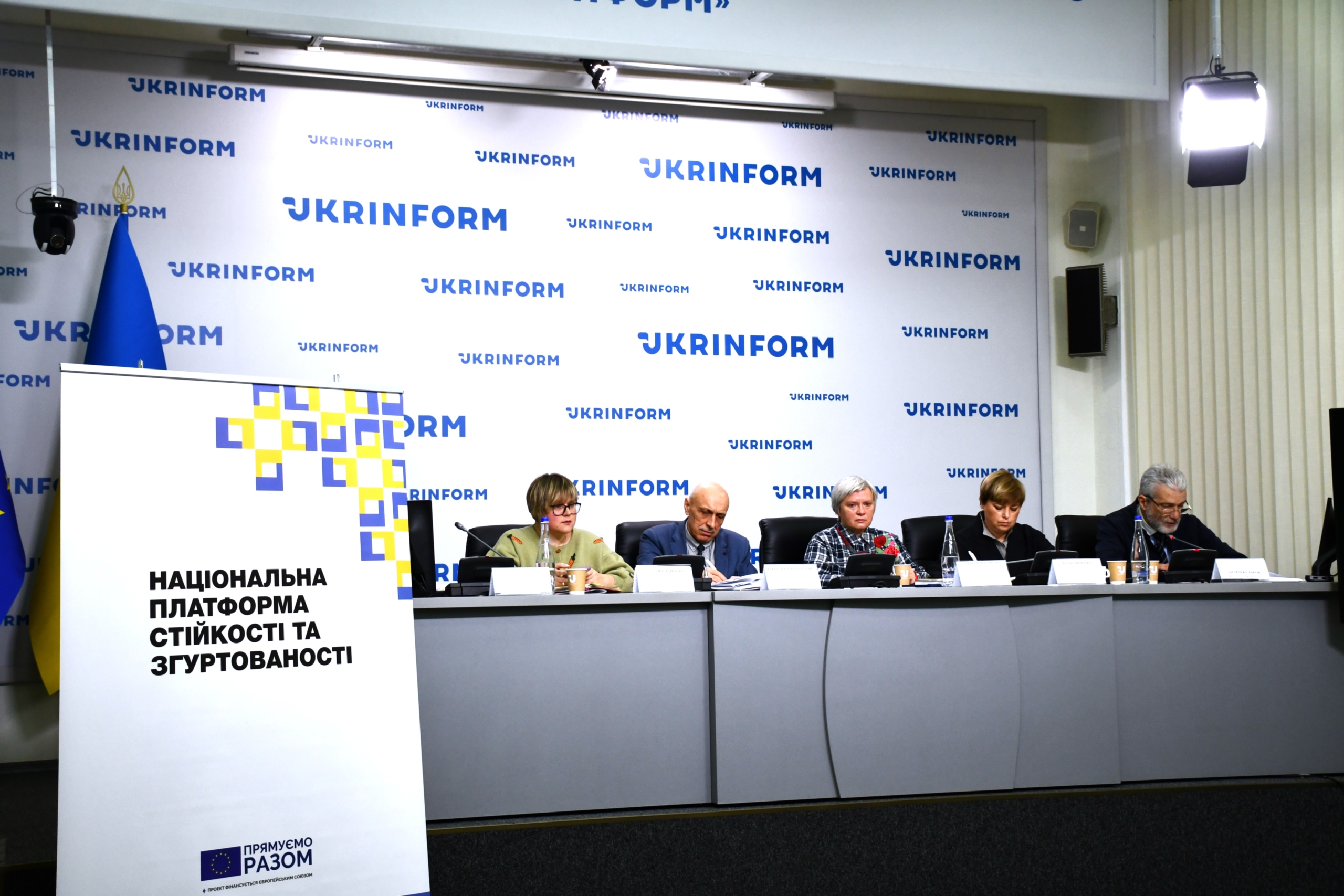
What should be the responsibility for collaborationism in the context of a high level of public demand for justice, was discussed by representatives of the public sector during a public discussion on the topic: “Perceptions and public policy on collaborationism: risks for resilience and cohesion.” The event, organised by the National Platform for Resilience and Cohesion, took place on November 12, 2024, at Ukrinform.
“Today, all the consequences of the occupation are being passed on to the people living in the temporarily occupied territories. The state does not want to share this responsibility with its citizens living under occupation,” said Alena Lunova, Advocacy Director of the Human Rights Centre ZMINA.
“Apart from Article 111-1 of the Criminal Code of Ukraine, which establishes criminal liability for collaborative activities, the state offers nothing else to the residents of the occupied territories. All the consequences of the occupation are passed on to the people living under occupation. They have to figure out for themselves what the occupation has brought them, whether they will work under the occupiers and what the consequences will be, how they will survive, whether they will receive a Russian passport in conditions where they cannot receive medical care or social services without it. The state in no way wants to share this responsibility and make life easier for the people who remain under occupation,” Lunova said.
She noted that the second challenge in this area is the trend of “demonising” living under occupation.
“We hear that those who return to the occupied territories are traitors. Those who live there and receive Russian passports are also traitors and collaborators. These discussions do not pass by people living under occupation, they hear these theses. Russian propaganda picks them up and spreads them.“
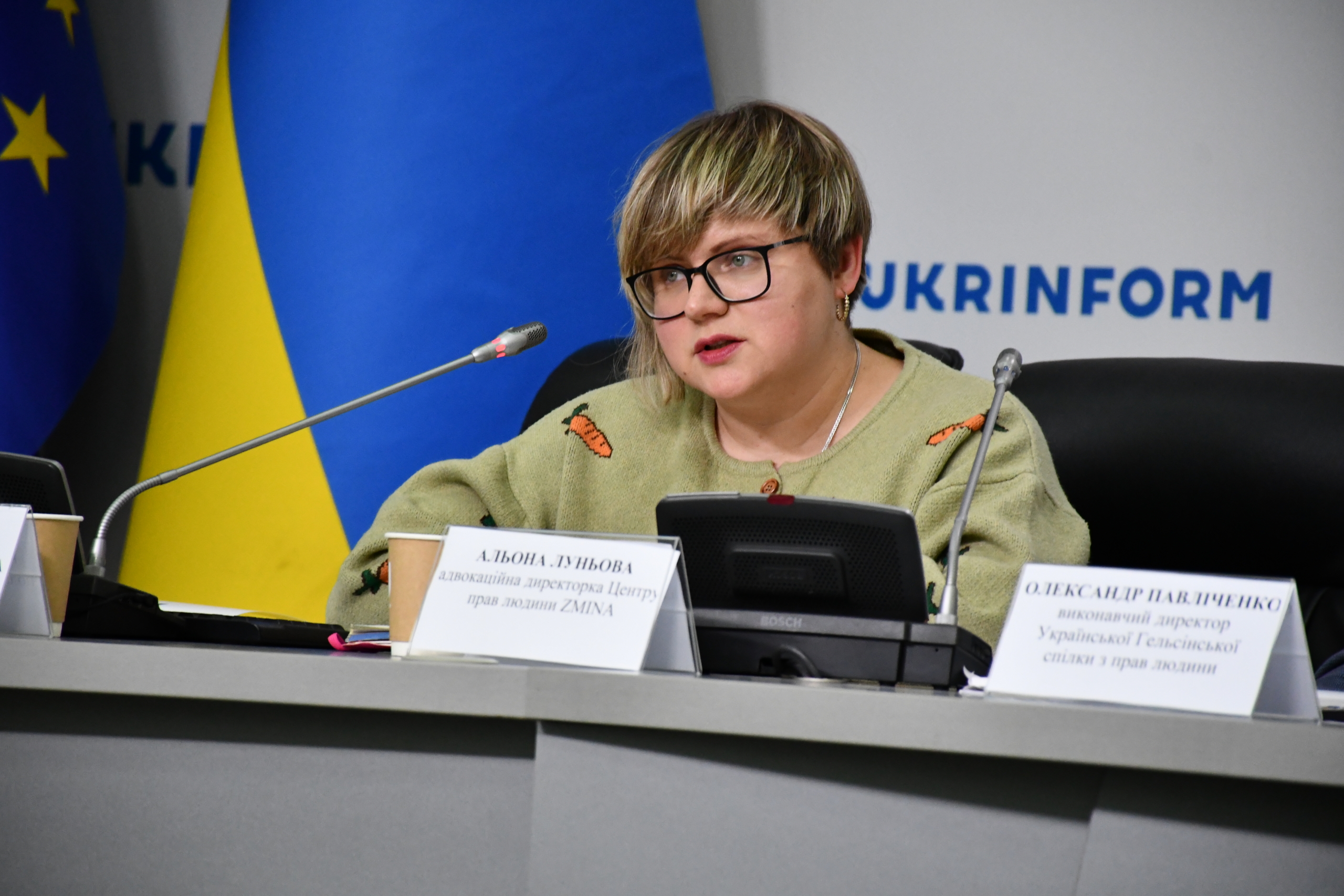 Alena Lunova
Alena LunovaAlena Lunova also adds that the research shows a consensus in society regarding the categories of people who should be prosecuted for collaborating with the occupiers: top officials, officials, law enforcement officers and representatives of military formations, sometimes including educators and media. Instead, in the de-occupied territories, we see the practice of the justice system targeting rescuers, utilities, carriers, and businesses that helped people survive. This practice should be changed in line with IHL, and such cases should be prioritised.
Yuliia Tyshchenko, Co-Founder of the National Platform for Resilience and Cohesion, also believes that prosecution for collaborationism should be based on a personalised approach. According to her, this is also demonstrated by the results of recent polls, according to which 90% of Ukrainians support the punishment of collaborators, but more than 50% believe that it should primarily concern those who worked in the occupation authorities. More than 60-70% are against such punishment for rescuers and utility workers, respectively.
“Along with the demand for justice, there is a high level of understanding in society that lustration procedures against collaborators should be applied on a personalised basis. Because living under occupation is not a crime. To meet the demand for justice, we need to find more adequate provisions in the public discourse and legislation to bring to justice for collaborationism,” says Yuliia Tyshchenko.
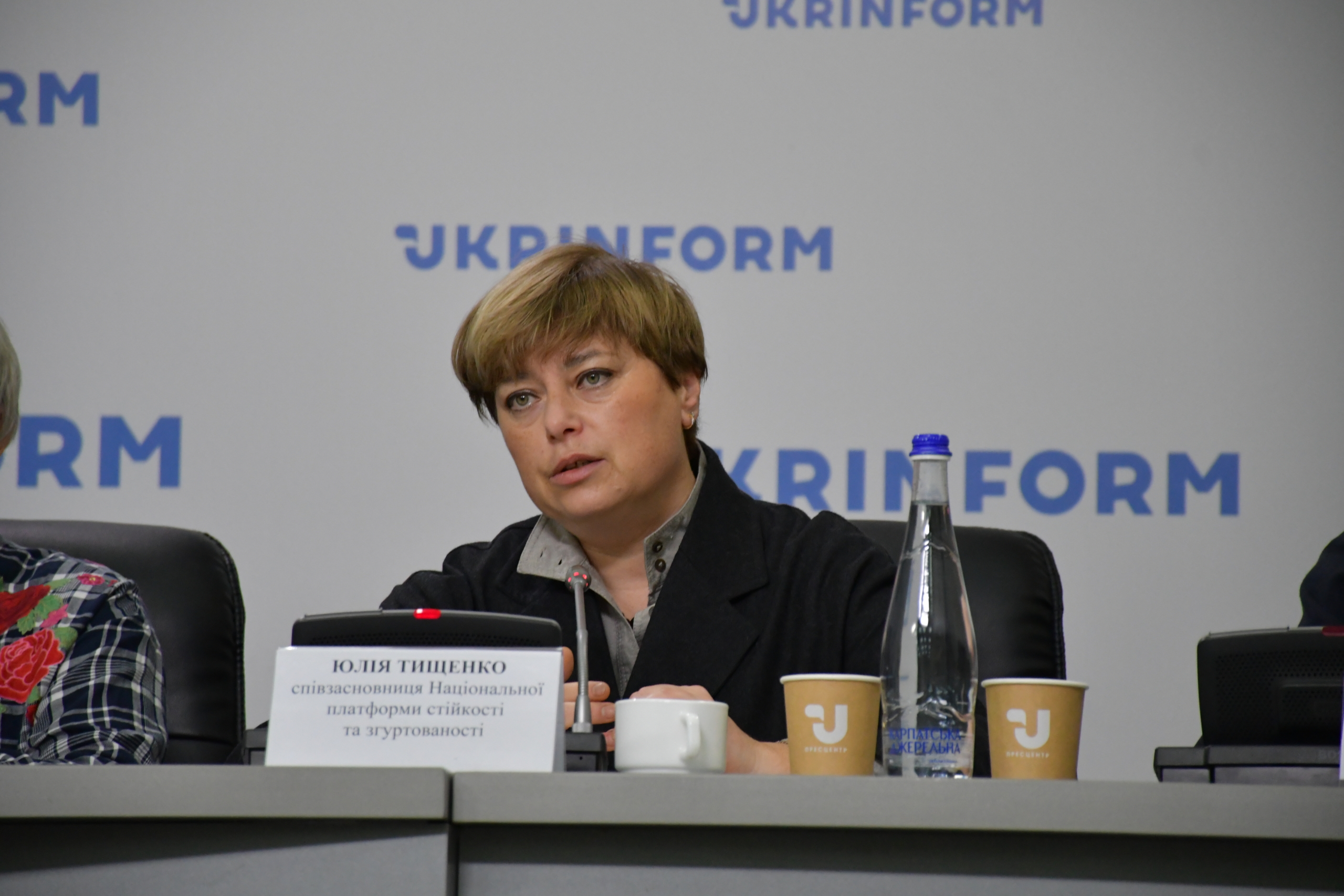 Yuliia Tyshchenko
Yuliia TyshchenkoOn the other hand, Oleksandr Pavlichenko, Executive Director of the Ukrainian Helsinki Human Rights Union, is convinced that a very important factor in measuring collaborationism is the time spent under occupation. The longer it is, the harder it is for people not to be involved in the occupation processes.
“Today, there are more than 8,900 criminal proceedings initiated under the article on collaborationism, and this is a huge number for such an amount of liberated territories. We see what policies and practises the state has used since the de-occupation to prosecute for collaborationism, and how it defines this activity. For example, prison administrators who continued to perform their functions during the occupation are transferred to the status of collaborators. This also applies to workers in education, medicine, social security, rescue services, and those responsible for critical infrastructure. But this is all related to ensuring the livelihood of communities. The question arises as to how the state assesses the level of collaborationism and how it is measured,” said Pavlichenko.
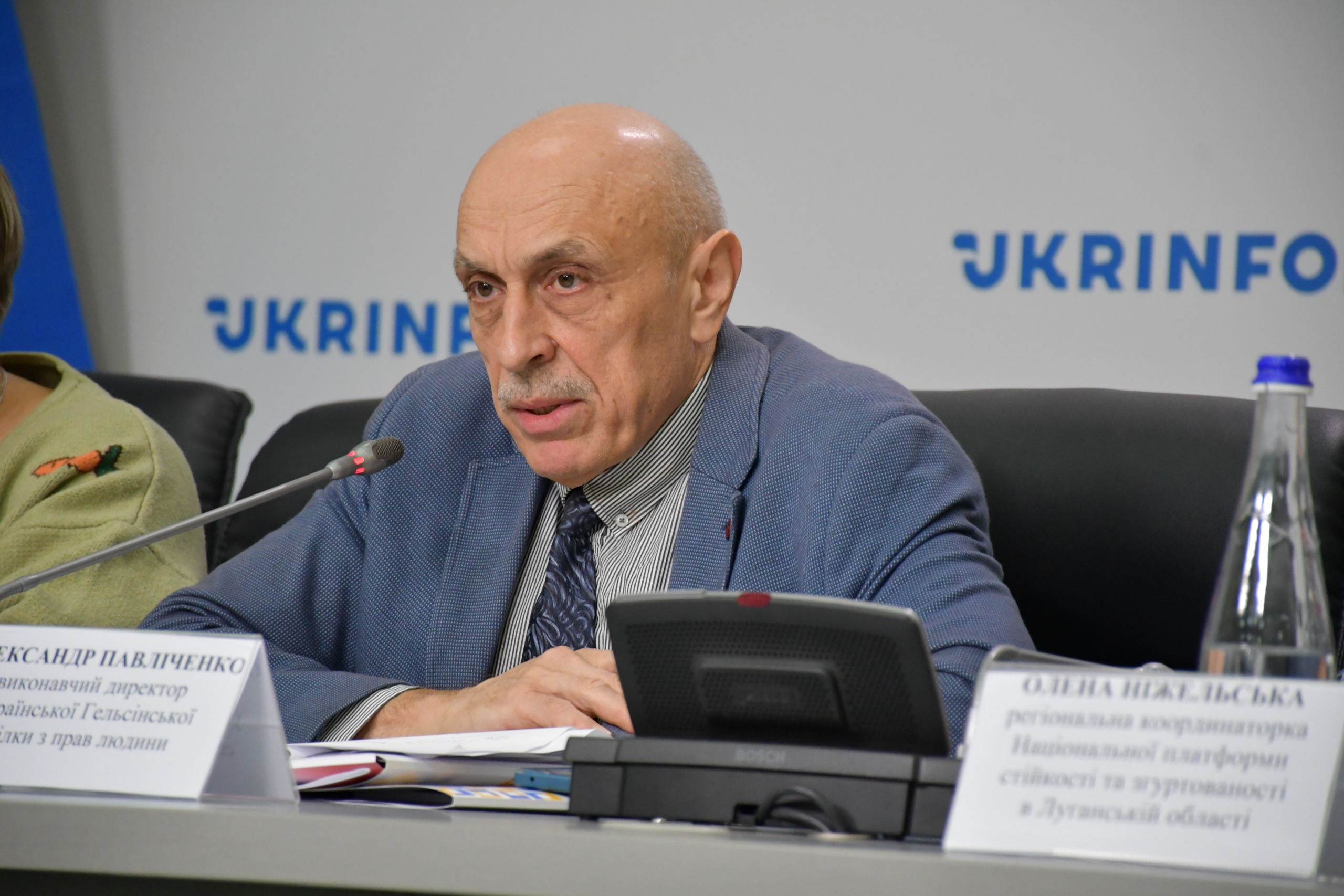 Oleksandr Pavlichenko
Oleksandr PavlichenkoOlena Nizhelska, Regional Coordinator of the National Platform for Resilience and Cohesion in the Luhansk region, is convinced that involvement in specific crimes should not be the determining factor in assessing collaboration activities.
“When determining the degree of guilt and punishment for collaborationism, attention is often paid to the profession. Rescuers or utility workers should be exempted of responsibility for collaborating with the occupiers. At the same time, the profession is not an indulgence. Representatives of any profession can commit other actions that require individual consideration and punishment. Not for the fact that a person was a teacher or a rescuer, but for the crimes they were involved in and the consequences of those crimes,” says Nizhelska.
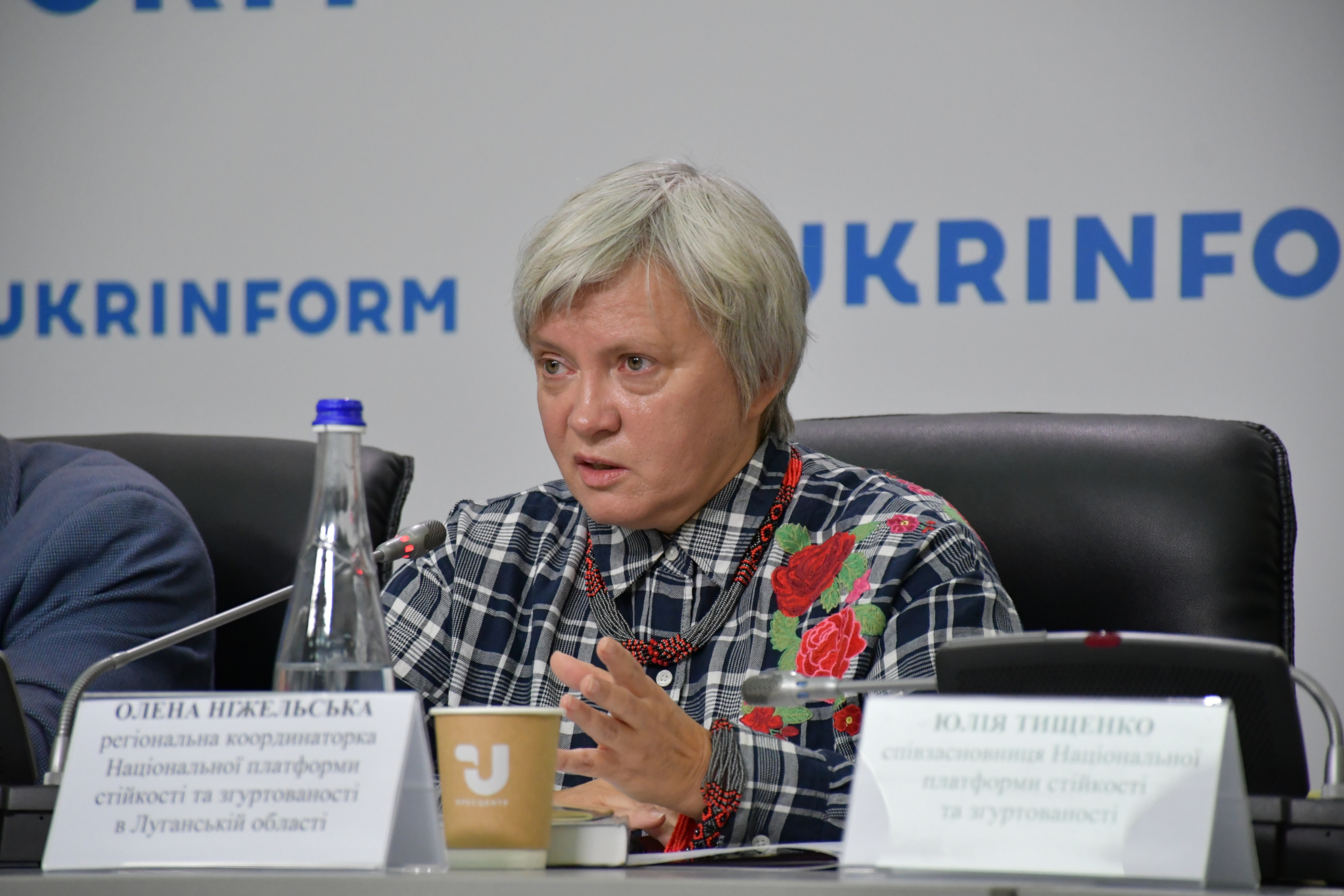 Olena Nizhelska
Olena NizhelskaOn July 30, 2024, Human Rights Centre ZMINA presented the study “Survival or Crime: How Ukraine Punishes Collaborationism“. This analytical report aims to study trends in the practice of considering cases of collaboration in Ukraine and analyse the relevant case law, study developments in amending criminal law, as well as communication and public perception of responsibility for collaborationism and the demand for justice, to further improve legislation on collaborationism and develop an effective strategy for considering such cases to form a consistent and proper practice.
If you have found a spelling error, please, notify us by selecting that text and pressing Ctrl+Enter.















